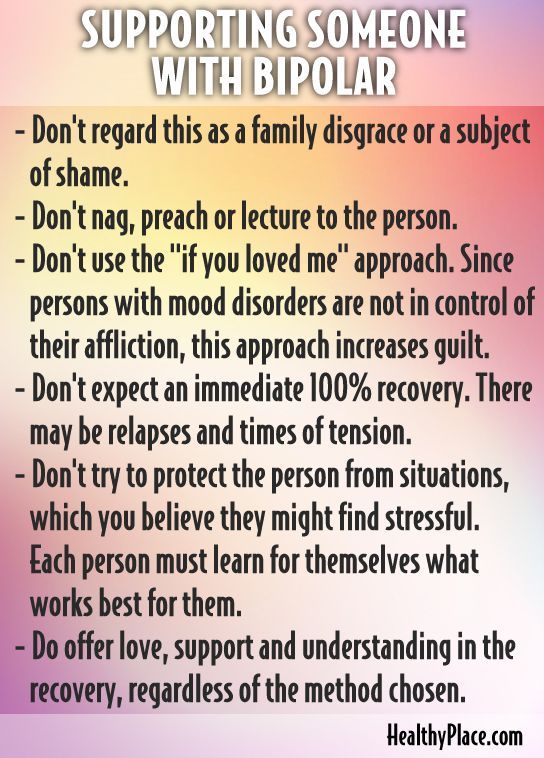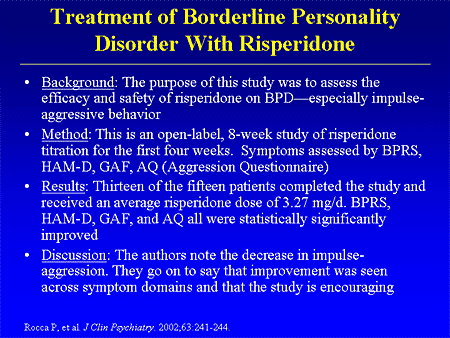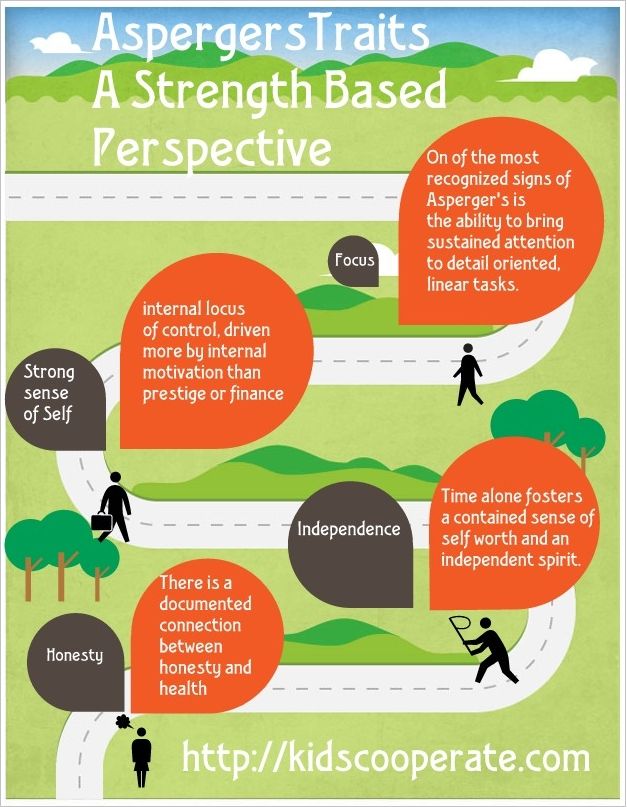Spouse of someone with bipolar disorder
Bipolar Relationships: What to Expect
Reviewed By:
Ups and downs are natural in any romantic relationship, but when your partner has bipolar disorder it can feel like you’re on an emotional rollercoaster. Not knowing what to expect each day is stressful and tiring. Over time, it wears on the relationship.
Understanding why your partner acts out sometimes or becomes withdrawn is the first supportive step you can take in strengthening your relationship. Learn exactly what a bipolar diagnosis means, how it could affect your partner’s behavior and what you can do to foster a healthy, stable relationship.
What does it mean if your partner is bipolar?
Bipolar disorder is a mental health condition marked by intense mood changes. People with the illness switch back and forth from mania or hypomania (an emotional state of being energetic and gleeful or sometimes aggressive or delusional) to having episodes of depression.
The lifelong condition tends to run in families, although the cause of bipolar disease is unknown. However, it can often be successfully managed through treatment. There are two primary types of bipolar disorder:
Bipolar 1
Bipolar 1 is a more severe form of the illness and is defined by manic episodes that have one of these characteristics:
- Hallucinations, delusions or paranoia
- Hospitalization required for safety
- Impulsive behavior with significant consequences
“When people are manic, they pursue pleasurable activities with great enthusiasm and with no regard for the consequences,” says Jennifer Payne, M.D., psychiatrist and director of the Women’s Mood Disorders Center at Johns Hopkins Medicine. “They may gamble, spend excessive amounts of money, use drugs or become promiscuous.”
Bipolar 2
People with bipolar 2 experience hypomanic episodes, which still include out-of-character behavior but aren’t as extreme as those with bipolar 1. Hypomanic episodes may include:
Hypomanic episodes may include:
- Increased energy and drive.
- Rapid speech.
- Decreased need for sleep.
“During hypomanic episodes, a partner with bipolar 2 may obsessively pursue sex with you or others,” says Payne. “They may stay up all night and have lots of wonderful ideas they want to tell you about at 3 a.m.”
Treatment Challenges
Bipolar disorder is usually treated with a combination of medications and therapy. However, successful treatment can be a challenge since many people miss the euphoria and energy of manic episodes.
Often people with bipolar disorder view these elevated mood states as their best selves — when they’re the most productive or creative — and will stop treatment in order to experience that again. Sometimes those with bipolar disorder will even intentionally trigger a manic episode.
“Lack of sleep is a trigger of manic episodes for a lot of people,” says Payne. “Sometimes patients with bipolar disorder will deliberately skip getting the sleep they need in order to initiate an elevated mood state.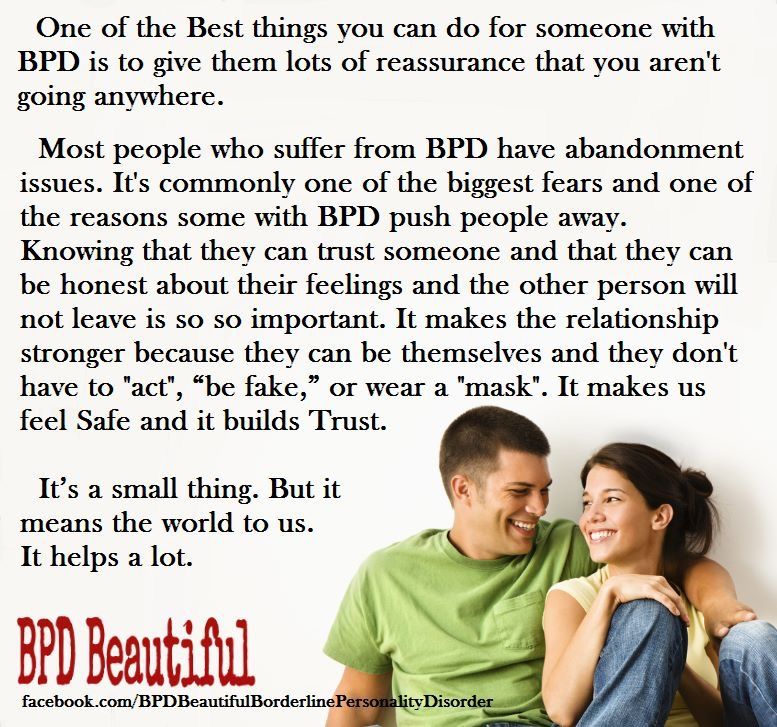 For example, a person might want the high energy that comes with a manic episode to get a project done.”
For example, a person might want the high energy that comes with a manic episode to get a project done.”
The key to your partner’s successful management of the illness is a commitment to continuing treatment and ongoing communication with their psychiatrist. This can take place at therapy sessions, during regular checkups or whenever necessary to discuss troubling symptoms.
Many people with bipolar 1 do well on lithium, a mood-stabilizing drug. Those with bipolar 2 may not fully respond to medications often used to treat bipolar disorder. If that’s the case for your partner, it’s important for them to continue to work with their psychiatrist to find an effective treatment.
Being in a Relationship with Someone Who Is Bipolar
There are certainly challenges in any romantic relationship, but bipolar disorder can make things especially difficult in various aspects of life:
Intimacy
It’s common for people with bipolar disorder to desire frequent sex during manic or hypomanic phases. Your partner may initiate intimacy much more than normal, or masturbate or use pornography more frequently than usual. Those with bipolar disorder may also engage in risky behaviors such as unprotected sex or extramarital affairs while manic.
Your partner may initiate intimacy much more than normal, or masturbate or use pornography more frequently than usual. Those with bipolar disorder may also engage in risky behaviors such as unprotected sex or extramarital affairs while manic.
During episodes of depression, your partner may avoid sexual contact altogether. This can be confusing or feel like rejection, especially if your partner recently desired lots of sexual activity during a manic or hypomanic period. Many medications for bipolar disorder can also lower sex drive.
Work
Your partner’s ability to perform well at work can be affected by bipolar disorder. Severe mood swings, along with manic symptoms such as poor judgement and impulsivity, or depressive symptoms such as low energy and disinterest make it tough to find and maintain a job. Stressors at work may also trigger or exacerbate your partner’s symptoms. If your partner can’t hold down a job, this could put more pressure on you to provide financial support until their illness is well-managed.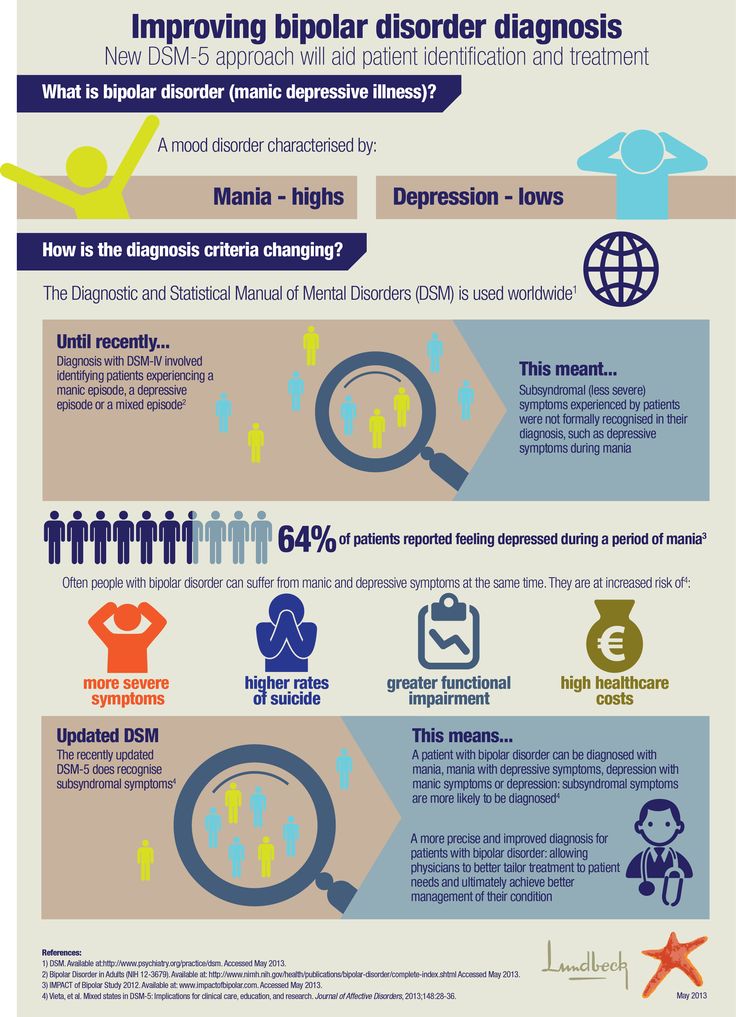
Parenting
Many people consider parenting the most stressful (albeit rewarding) job of their lives. But any kind of stressor — good or bad — has potential to trigger manic or depressive episodes for people with bipolar disorder.
In addition, the erratic behavior associated with bipolar disorder can be confusing and scary to children, who look to parents to provide stability. Helping your partner get and maintain treatment to control symptoms is crucial for providing a safe and secure home for children.
How to Make a Bipolar Relationship Work
It takes effort to keep any relationship strong, but it can be especially challenging when your partner has bipolar disorder. Payne offers these recommendations:
Go to Couples Counseling
Couples counseling is essential for working through upset over a bipolar partner’s actions. It’s common for someone with bipolar disorder to hurt and offend their partner.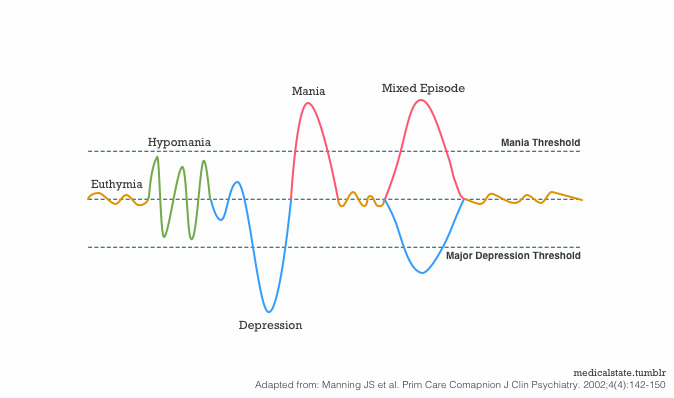 When someone is first diagnosed, there are often relationship issues that need to be addressed. Couples counseling can help you:
When someone is first diagnosed, there are often relationship issues that need to be addressed. Couples counseling can help you:
- Understand that there’s an illness involved in the hurtful behavior.
- Forgive the behavior that happened during an altered mood state.
- Set boundaries with a partner about maintaining treatment.
Get Involved with Treatment
Ask if you can be involved with your partner’s treatment, which may include occasionally going to the psychiatrist together. Being a part of your partner’s treatment has multiple benefits, including:
- Gaining a better understanding of the illness.
- Providing additional insight for the psychiatrist.
- Learning to spot signs of impending episodes.
- Alerting the psychiatrist about mood changes.
Even if your partner hasn’t signed off on you exchanging information with their psychiatrist, you can still report worrisome signs (the doctor just won’t be able to tell you anything).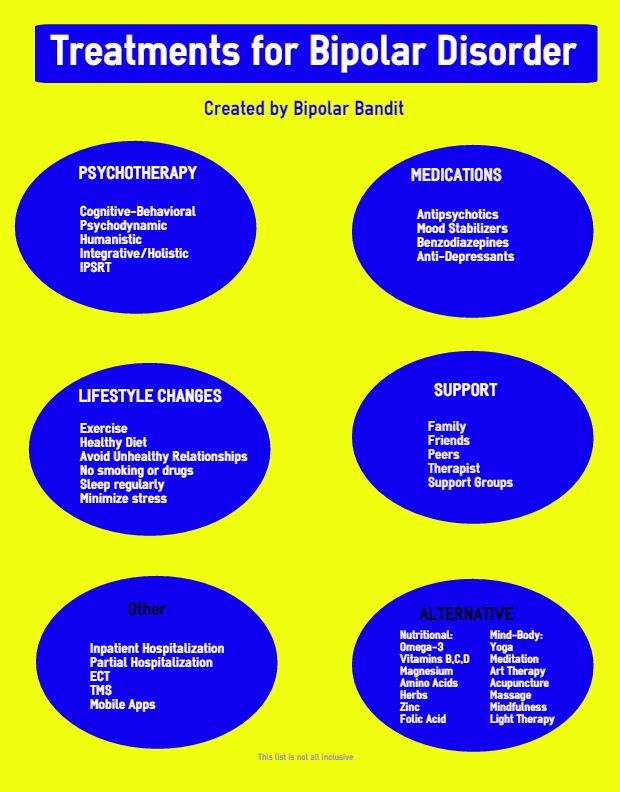 This gives the doctor a chance to make quick medication changes that may help your partner avoid being hospitalized.
This gives the doctor a chance to make quick medication changes that may help your partner avoid being hospitalized.
Practice Self-Care
Self-care gets a lot of buzz these days, but nowhere is it more important than when you’re caring for someone with a serious illness such as bipolar disorder. It’s essential to dedicate time to your own physical and mental health, whether that’s going to a support group, talking to a therapist or attending a yoga class.
Being in a healthy relationship with someone with bipolar disorder requires not only careful management of their illness, but also setting aside time to take good care of yourself.
10 Tips for Living with a Bipolar Spouse
If you’re married to someone living with bipolar disorder, you already know it’s a rough ride sometimes. The mood swings can make your days together sometimes exhilarating and other times frustrating. Yet you and your bipolar spouse can beat the dire statistics that predict the end of many of these marital unions.
New Orleans resident “Mary” has been married to her husband for 25 years. Almost halfway through their marriage, he was hospitalized at age 42 and received a diagnosis of bipolar disorder. The diagnosis was not surprising due to a strong family history — but it helped to clarify the situation, says Mary, age 51.
“The diagnosis made it easier, because you know the reason, but it doesn’t change anything. It is a roller coaster. You can have months that are perfectly fine and then all of a sudden it will come from nowhere,” she says.
Mary says she knows the statistics showing higher rates of divorce and abuse in marriages that include one spouse with bipolar disorder. She describes her husband as a “rapid cycler” (“On a day to day basis you never know what it’s going to be,” she explains) and says there are many days and weeks when she is tired, frustrated, and wondering why she is still married. After so many years of marriage and successfully raising a daughter together, she has developed a philosophical and compassionate view of her husband and her relationship.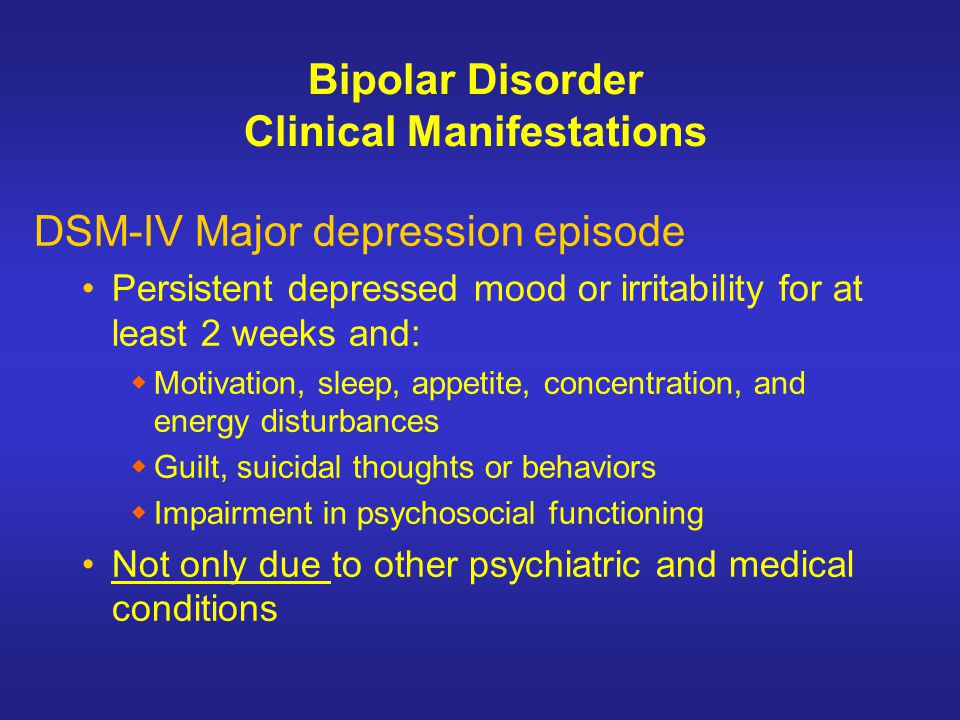
Coping with Bipolar Spouse Mood Swings
Here are some tips for surviving and thriving in your relationship:
Breathe. When things are tough, take a deep breath and step back. “It’s a disease — it’s not the person. So you try to remember that,” advises Mary.
Build support. Caring for someone with a disease can keep you focused on his needs, but you also need your own sources of support. Joining a support group for family members of bipolar patients can help. Working with your own therapist may also be a good idea. Support from understanding family and friends is also invaluable. Mary has never joined a support group — and says she probably could have benefited from one — but she does find support in her friends.
Get away. Mary says part of what keeps her sane is her job, for which she occasionally travels. Despite the fact that her business trips often coincide with times when her husband stops taking his medications, she values her time away. At home, when her husband’s moods are out of control, Mary acknowledges, “I try to avoid him.”
At home, when her husband’s moods are out of control, Mary acknowledges, “I try to avoid him.”
Laugh. Whether you can insert humor into the situation and get a good response is highly individual, but Mary says this tactic works for her. “I try to make him laugh, to get him out of it,” she says.
Enforce meds. Mary has made it clear to her husband that taking his medication is non-negotiable. “If you can keep them on the meds, you’re okay. It’s a fight. It’s like having another child,” she says. If he refuses to take his meds (as he often does when he is manic), she leaves, even if only to spend the night at a friend’s house to make her point. That usually gets him back on track.
Recall your love. There are hard times in marriage to a bipolar spouse, acknowledges Mary. But she prefers to see the man she fell in love with, even when his moods are unpredictable.
Know (or grow) your philosophy of marriage. Mary believes in the commitment she made when she married her husband. “You know, I married a man for better or for worse. I did not marry a disease." While she acknowledges bipolar disorder is difficult, she also notes, "The person I fell in love with is still there. Would I want someone to leave me? I don’t think so,” she explains.
“You know, I married a man for better or for worse. I did not marry a disease." While she acknowledges bipolar disorder is difficult, she also notes, "The person I fell in love with is still there. Would I want someone to leave me? I don’t think so,” she explains.
Look for triggers. “When your spouse is in a stable or more favorable mood, pay close attention to what environmental triggers precipitated and are maintaining the stability. Often there are specific environmental stressors or soothers — including relationship issues — that influence mood swings. Use the soothers to help maintain the mood that both of you are desiring,” advises marriage and family therapist Tracy Todd, PhD, based in Alexandria, Va.
Ask. Despite the mood swings, your spouse can tell you what he needs. “Have an honest discussion about what is helpful to your spouse when he is in an undesirable mood. Incorporate ideas, plans, and strategies so that there can be a minimization of harmful effects,” advises Todd.
Keep talking. There may be days and weeks when it is not easy, but communication is essential. “Communication during and between mood swings is critical to managing the accompanying stressors,” says Todd.
Ultimately, Mary’s experience has given her a unique depth of compassion, both for family members whose loved ones have bipolar disorder and for people who live with bipolar disorder. “[I've said before] that I would hate to be in his head — I can’t even imagine how he feels,” she says.
Is it possible to be happy in a marriage where one of the spouses is mentally ill? Both, having graduated from universities, worked, lived separately from their parents. And six years later, Alina suddenly fell ill.
On the eve of the New Year, Alina's father suddenly died of a heart attack. The funeral took place, and then Anatoly began to notice that something strange was happening to his wife. nine0005
“My father had died a few years earlier and I was crying like crazy,” he recalls. - And Alina did not shed even a tear - apparently, this is how she was brought up in the family: you can’t show feelings. Then I still thought: “Wow, how is she holding on!”
- And Alina did not shed even a tear - apparently, this is how she was brought up in the family: you can’t show feelings. Then I still thought: “Wow, how is she holding on!”
But the next day after the funeral, Anatoly found his wife crying over an album of photographs. And after a couple of days, she began to stubbornly assert: her father was killed. On this occasion, they even had a little fight - Anatoly asked his wife not to say stupid things. nine0005
A few more days passed, Alina calmed down. And a week after the funeral, unexpectedly for everyone ... she opened the window and jumped out.
“I was running down from our fifth floor, fully convinced that there was a corpse below,” Anatoly recalls, “and suddenly I saw that she was alive!”
It turned out that despite the height from which she fell, Alina escaped with several fractures.
One of the neighbors called an ambulance, the woman was taken to the hospital.
“And then I believed in God,” Anatoly added.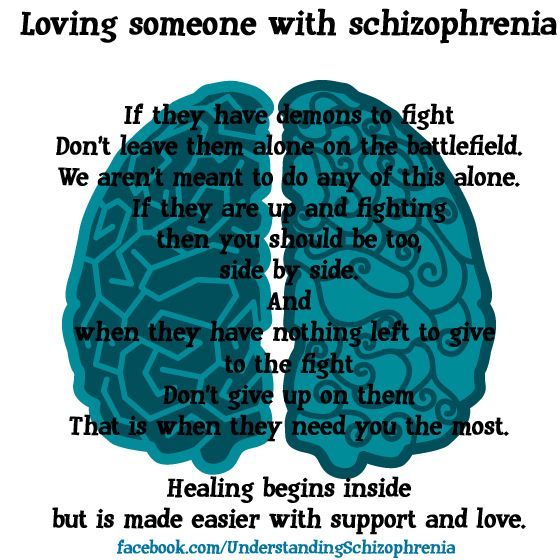 nine0005
nine0005
“The pit is deep, but you can climb out and live a normal life”
At the hospital, doctors treated Alina's fractures. The fact that the patient was talking was noticed later. The surgeons called a psychiatrist to the patient, he prescribed pills, but after a while they were canceled.
Of course, doctors should consult with each other, but Alina then drank a lot of medicines for bone fusion, and the attending physician simply did not begin to find out their compatibility with psychotropic drugs. Alina got worse, sometimes she was delusional, sometimes she just screamed. nine0005
“At first, I was very distracted by the fact that I had to do rehabilitation. I was looking for doctors who would help my wife develop her arms and legs, - says Anatoly. - But at times despair covered - like a person next to you, but at the same time - this is not him, and the former is completely gone. I looked at my wife in horror: “God, what happened to her?”
Later, Alina was transferred from surgery to traumatology, and when she was discharged, she was diagnosed with schizophrenia (apparently, this is how the first psychiatrist designated it).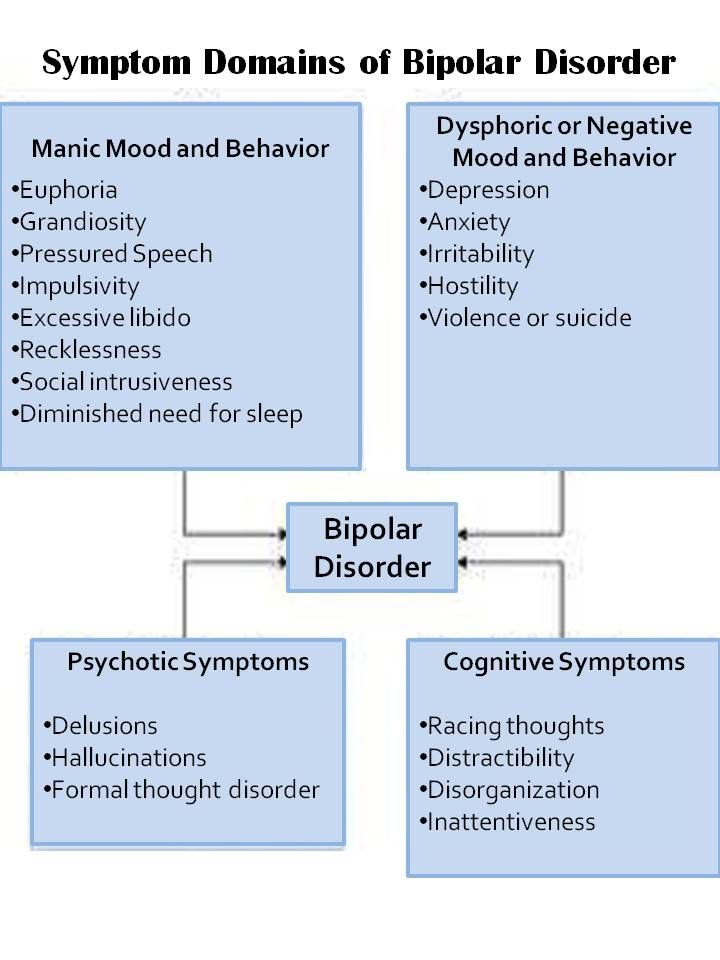 Fortunately, acquaintances helped to find a good private specialist, who reassured all those close to him a little, explaining that in the old psychiatric school this diagnosis was interpreted very broadly. nine0005
Fortunately, acquaintances helped to find a good private specialist, who reassured all those close to him a little, explaining that in the old psychiatric school this diagnosis was interpreted very broadly. nine0005
“Most likely, your wife has a manic-depressive psychosis (now Alina's diagnosis sounds like “psychosis on the background of bipolar affective disorder, BAD” - ed.), – said the doctor. “The pit is deep, but you can crawl out of it and live an almost normal life.”
“Get a divorce, no, I didn't think about it. I didn’t go to the temple at that time, but for some reason I was already sure that marriage is concluded once and for life, - Anatoly explains. - Probably, there were too many divorced relatives around me. nine0005
Then, when he started going to church himself, the thought appeared that Alina should be baptized and married as soon as possible.”
“Sometimes you just have to wait a couple of days, and Alina will “come back””
Within a few months, Alina was walking without crutches, she completely recovered physically. And mental problems have since become permanent. Doctors were found, drugs were selected, but all this did not cancel the periods when the depressed state was replaced by a terrible euphoria. It used to be that acquaintances asked Anatoly in bewilderment: “What is going on with you? Alina called me yesterday, she seems to be completely drunk. nine0005
And mental problems have since become permanent. Doctors were found, drugs were selected, but all this did not cancel the periods when the depressed state was replaced by a terrible euphoria. It used to be that acquaintances asked Anatoly in bewilderment: “What is going on with you? Alina called me yesterday, she seems to be completely drunk. nine0005
A couple more years passed, the couple started going to church and got married. In general, Alina felt better, although there were several breakdowns, after which she ended up in the hospital.
“During exacerbations, I became my wife's enemy No. 1, this was perhaps the most difficult. But, in general, if you adapt to the disease, then you can live, - says Anatoly. “I know that if a severe attack begins, you need to call the doctors, wait a few days, and then Alina will come to her senses, “come back.” nine0005
He considers it very important in Alina's life that over time she herself learned to recognize signs of deterioration in herself.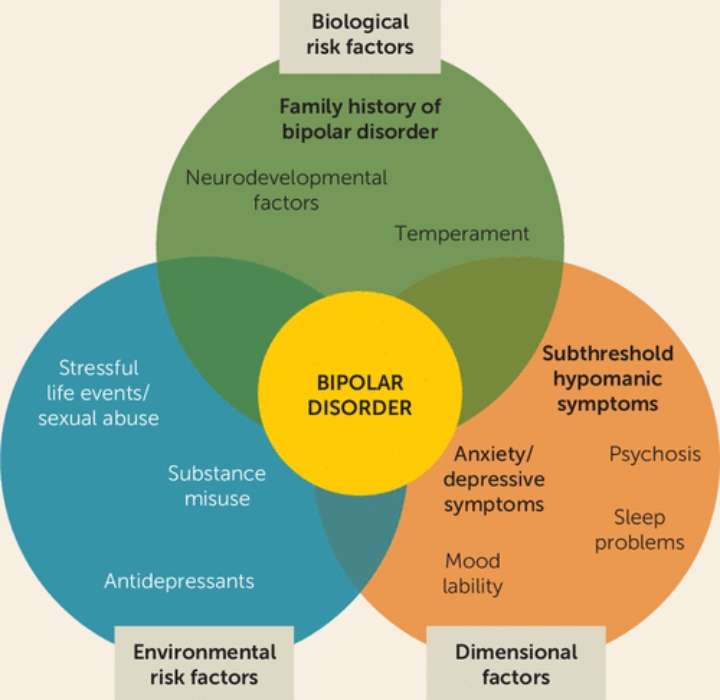 Sometimes she herself called the doctor, agreed that she would come for hospitalization. “It’s true,” Anatoly scolds the doctors, “several times, instead of immediately injecting his wife with a drug that helps her, they tried to prescribe “easier” pills - and then a few days later Alina was admitted to the hospital in a serious condition.”
Sometimes she herself called the doctor, agreed that she would come for hospitalization. “It’s true,” Anatoly scolds the doctors, “several times, instead of immediately injecting his wife with a drug that helps her, they tried to prescribe “easier” pills - and then a few days later Alina was admitted to the hospital in a serious condition.”
Over the past years, Anatoly himself has learned to navigate well in medicines, in doctors, and in the states of his wife. Perhaps, largely due to such attentiveness, Alina has not had psychosis with being admitted to the hospital for several years. nine0005
“Our situation is greatly facilitated by the fact that, despite her illness, Alina has survived as a person, she is the same, she has criticism of her own condition. She reads all the new literature that comes out on bipolar disorder.
We have not lost contact, we go to exhibitions together, to the conservatory, to visit relatives, we go to the country. Alina is an excellent housekeeper, reads a lot, sometimes works - gives mathematics lessons to private students, ”says Anatoly.
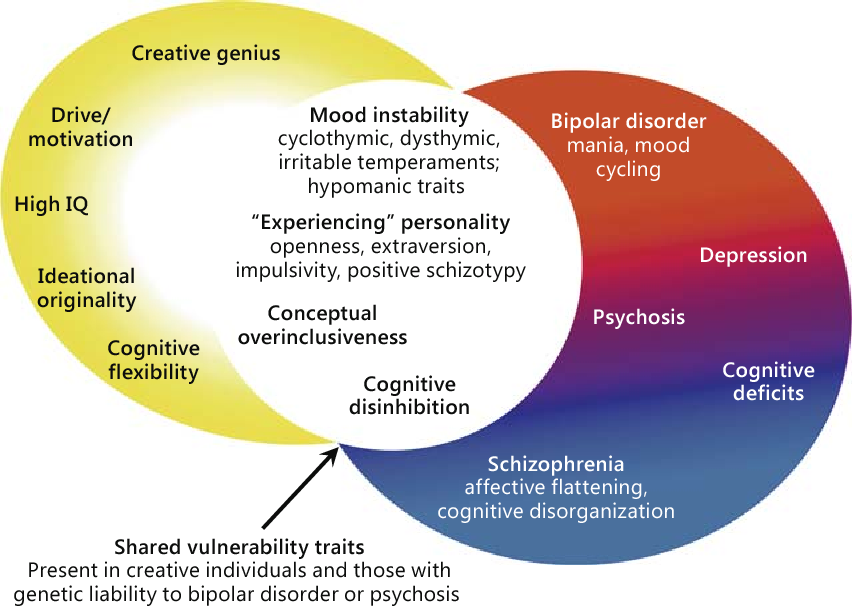
“I don't advertise my wife's illness to outsiders, everyone is aware of my own”
Most of the spouses' relatives know about Alina's illness. “It all started with such a terrible event that friends and relatives were aware,” recalls Anatoly. “And, of course, I try not to tell outsiders about Alina’s illness - why, because the attitude to mental illness in our society is still tense.”
It's also lucky that Anatoly's wife's illness does not prevent him from working. nine0005
“I only had to ask for time off a few times – once Alina was in the hospital and I had to go to her urgently. Then I went to the authorities and asked them to let me go for two days. I don't even remember any other special cases.
Now Anatoly is thinking more not about his wife's illness, but about some of her attitudes, rules of life that could lead to this illness. For example, the fact that Alina is very worried, but always inside, does not express feelings outwardly. “Since childhood, she grew up with the idea that you shouldn’t cry in front of people. But crying when you're grieving is just fine! - says Anatoly. “Or the fact that, if something happens, she immediately begins to save everyone, even when people do not ask for help.” nine0005
“Since childhood, she grew up with the idea that you shouldn’t cry in front of people. But crying when you're grieving is just fine! - says Anatoly. “Or the fact that, if something happens, she immediately begins to save everyone, even when people do not ask for help.” nine0005
When asked whether he himself sometimes feels the need to talk to someone close about his wife's illness, Anatoly thinks for a moment, and then answers:
“Yes, no, perhaps. I go to church. My wife and I have one confessor, he is aware of the situation, I talk to him.”
“The main thing is to see the meaning”
Alina and Anatoly have been going to the same church for more than 20 years.
“I remember, out of neophyteism, I once tried to “build” Alina,” Anatoly laughs. - He imposed lenten strictness at home, urged on with baptism. My confessor then restrained me, saying: “Calm down, don’t put pressure on her, she doesn’t need this, and she can’t cope with this.
” nine0005
According to Anatoly, it was faith that allowed him to find meaning in all this, to endure what had happened: “Maybe, if it weren’t for my wife’s illness, I wouldn’t have come to faith.
To a person in my place, I would say: everything is not fatal. Medicine is developing, now we have gone incredibly far from the 19th century, when our relatives would simply be placed for life in the “house of sorrow”, as psychiatric hospitals were sometimes called in those years. And now every year they come up with new drugs.”
Anatoly believes that the church rule that in case of mental illness a spouse can be divorced should be clarified. After all, the concept of "mental illness" is very broad, and if desired, it can be used to simply abandon a person. nine0005
Illustrations by Ekaterina Vatel
People with bipolar disorder tell how to support them properly
On March 30, the Day of Bipolar Disorder is celebrated all over the world.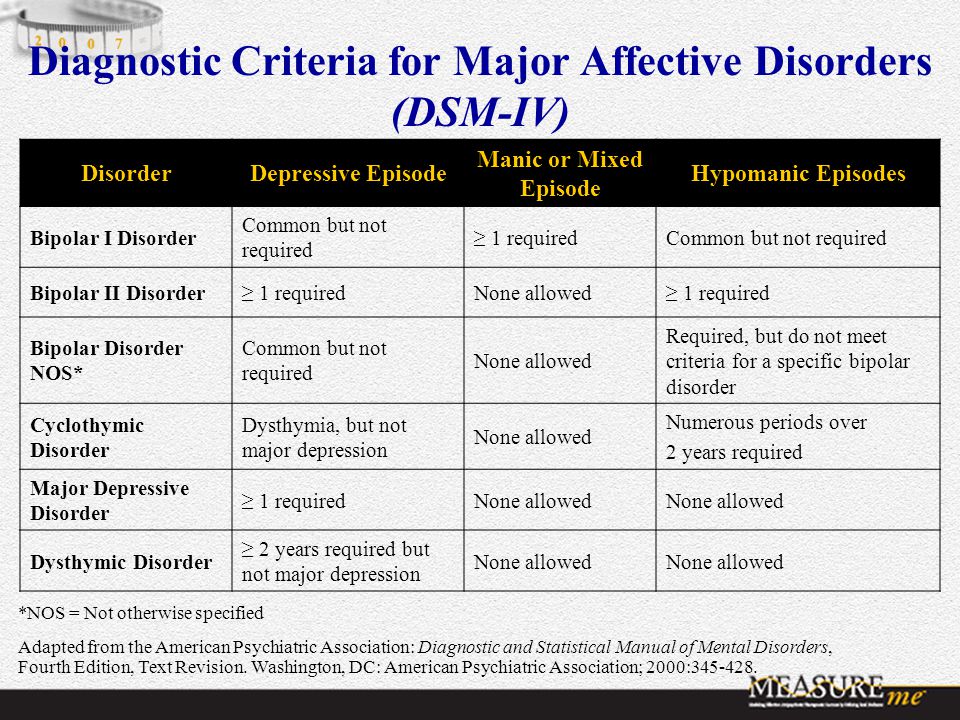 With this disease, it is important to monitor mood changes, which can be difficult to do alone. The founder of the Bipolar Association, Masha Pushkina, has collected stories of people who are helped by treatment partners.
With this disease, it is important to monitor mood changes, which can be difficult to do alone. The founder of the Bipolar Association, Masha Pushkina, has collected stories of people who are helped by treatment partners.
At the initiative of public organizations that bring together scientists, doctors and activists, every year on March 30, World Bipolar Day is celebrated. The date chosen was the birthday of Vincent van Gogh, an artist who, according to researchers, was the embodiment of a "bipolar genius." nine0005
With bipolar disorder, a person lives either in a state of high emotional uplift and excitement (mania), or in depression. According to world statistics, about 2% of people suffer from bipolar disorder in various forms. This means that in Russia there are at least three million bipolar people - this is about half of St. Petersburg.
In most cases, this condition responds well to medication. But, unfortunately, many do not seek help or do not know how to find it.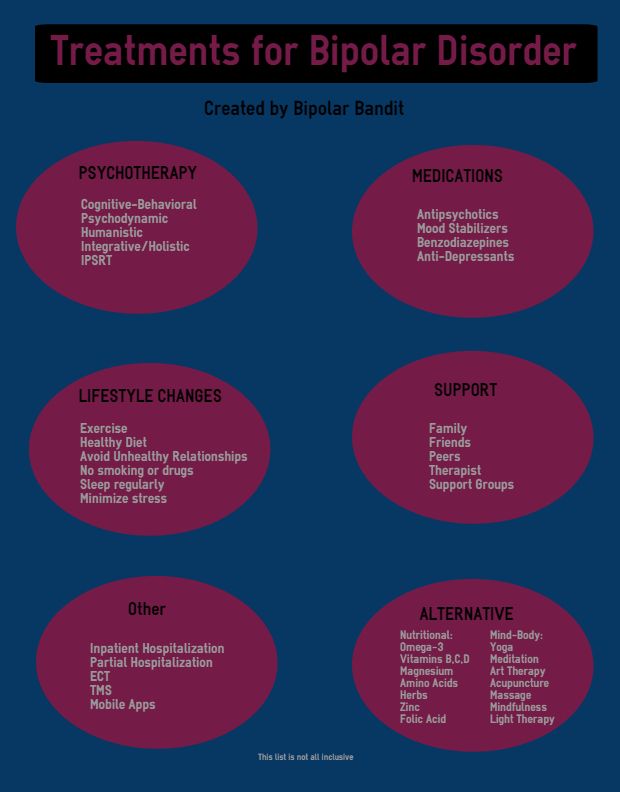 Without treatment, the disease progresses and ultimately leads to sad consequences: loss of family, job, disability in general, and in almost every seventh case, suicide. nine0005
Without treatment, the disease progresses and ultimately leads to sad consequences: loss of family, job, disability in general, and in almost every seventh case, suicide. nine0005
These consequences can be avoided. The peculiarity of bipolar disorder is that the onset of remission depends not only on the doctor and medications, but also on the behavior of the patient himself. Very often, bipolar people provoke seizures "with their own hands." The mood of people with BAD (bipolar affective disorder. - Note ed. ) is very unstable, the balance is fragile, and you can “start” mania or depression in dozens of ways: the psyche is easily shaken by psychoactive substances, alcohol, lack of sleep, too intense work, travel and even love. So, a short time after the next course of treatment with powerful drugs, the person again ends up in the hospital. And each new attack reduces the chances of a long remission, affects social status, and even more painfully - self-esteem. nine0005
The experience of people with mental disorders around the world has proven that you are much more likely to cope with difficulties when you are supported by people who understand your problems and condition, but do not look at you as a patient.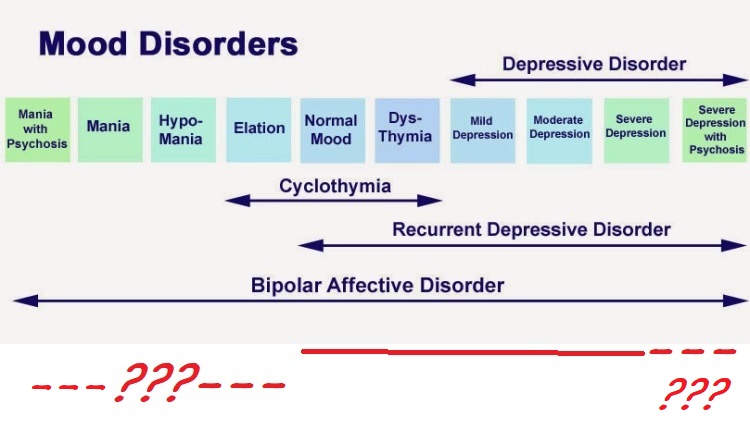 As practice shows, such a person can be not only a partner or close relative. An old friend, and even a person with whom you have never met in person, can help you get through the darkest times. Masha Pushkina, especially for Afisha Daily, spoke with several bipolar people about those in whom they found their support. The result is a story not about illness, but about friendship and trust, which can defeat even madness. nine0005
As practice shows, such a person can be not only a partner or close relative. An old friend, and even a person with whom you have never met in person, can help you get through the darkest times. Masha Pushkina, especially for Afisha Daily, spoke with several bipolar people about those in whom they found their support. The result is a story not about illness, but about friendship and trust, which can defeat even madness. nine0005
Yana, 31 years old
Housewife, collects books and enjoys confectionery
Purposefully, I didn't find out about the ways of support anywhere, everything turned out quite naturally. I have been sick for 15 years. The first person who looked after me was my best friend, and now it's my husband.
When my hypomania (a mild degree of mania, which is characterized by a constantly high mood. - Approx. ed. ) accelerated into a full-fledged mania (this state is also characterized by a one-sided attraction to some topic, sometimes accompanied by delirium.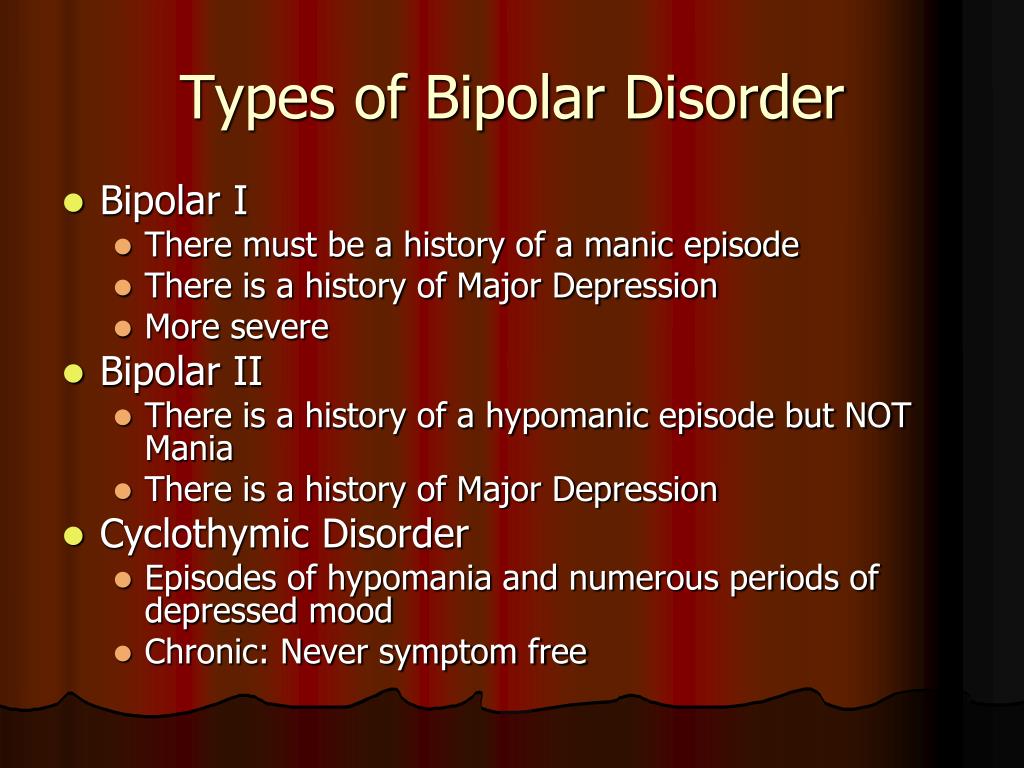 - Note ed. ), it became clear that I needed to be looked after. A friend began to pay attention to repetitive patterns of behavior in one phase or another, and we decided together to find out what helps in such cases. I think my friend was afraid to take responsibility for my condition, but she turned out to be generous and selfless. When I got married, a friend passed this knowledge on to her husband, and he already supplemented it, based on his own experience. The husband initially knew with whom he connects his life. He says it didn't scare him. nine0005
- Note ed. ), it became clear that I needed to be looked after. A friend began to pay attention to repetitive patterns of behavior in one phase or another, and we decided together to find out what helps in such cases. I think my friend was afraid to take responsibility for my condition, but she turned out to be generous and selfless. When I got married, a friend passed this knowledge on to her husband, and he already supplemented it, based on his own experience. The husband initially knew with whom he connects his life. He says it didn't scare him. nine0005
I have obsessions during my manic episodes. My husband does not argue with me at this time, but he also does not feed them, trying to redirect my stormy energy in a different direction. You can’t argue, because the result will be the opposite: I will finally get stuck on the idea, I will consider that I must prove it at all costs, even if the whole world is against me, and there are enemies and conspiracies around. If this does not help, the husband agrees to discuss all these things, but at the same time tries to slow down their implementation by offering to draw up a specific and detailed plan.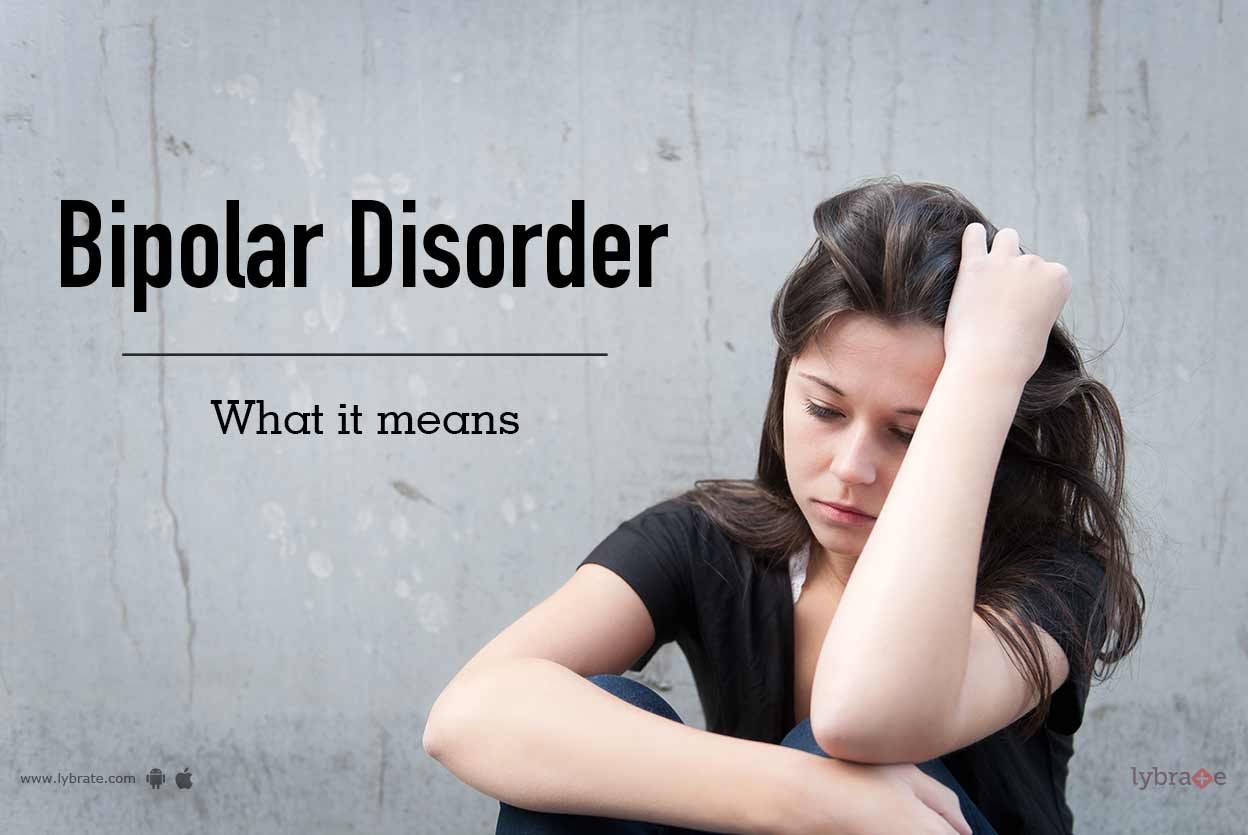 Sometimes it takes me a long time. nine0005
Sometimes it takes me a long time. nine0005
For example, I always want to move somewhere. Right now, and why aren't we packing our things yet? My husband tries to make me write down what are the pros and cons of different cities, what attracts us to them. As a result, I sit for hours on different forums, make lists, think about how we will arrange our life, calculate the budget for different countries of the world. There is also a manic passion for travel, but after preparation, we usually implement these plans. And many years ago, in a fit of mania, I bought an apartment - with a mortgage, with hellish payments. Then it took a long time to resolve this situation, but, fortunately, everything worked out well. nine0005
My husband began to chart my mood. I also manage it, and we check the results so that they are objective. Quarrels due to the fact that the husband takes on the role of the elder often arise in the manic phase (never in depression). Then I become very suspicious, any attempts at control cause rage.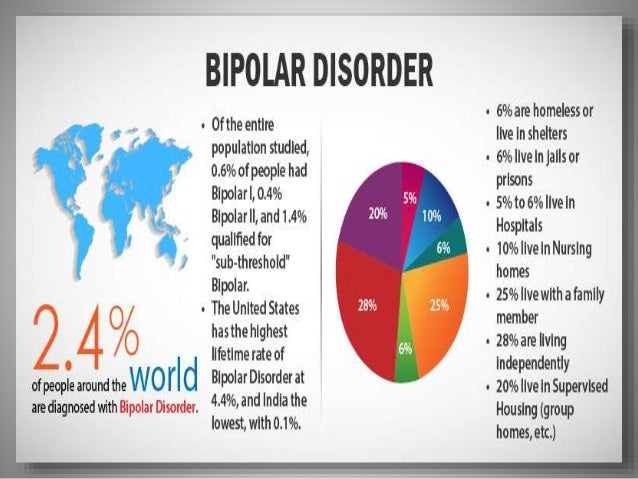 But now the husband has learned from experience, so he does not react to attempts to unleash a conflict. With obvious attacks of rage and auto-aggression, he uses holding therapy (long strong hugs. - Note. ed. ). We have seen this in autistic children, this is how their parents influence them.
But now the husband has learned from experience, so he does not react to attempts to unleash a conflict. With obvious attacks of rage and auto-aggression, he uses holding therapy (long strong hugs. - Note. ed. ). We have seen this in autistic children, this is how their parents influence them.
When I'm depressed, he doesn't comfort me, because it's pointless, but tries to give reasonable arguments that this period has always ended and this time will also pass soon. We look at mood charts for the past months, discuss the duration of the attacks: two weeks have already passed and, judging by past experience, it should get better in a couple of weeks.
Such support from her husband helps in many ways. When I was being treated by two doctors, taking all the medicines, I didn’t have such support, everything was very bad. Over time, I stopped disappearing from home in a manic state and inflicting serious injuries on myself. All my super-ideas remain on paper in the form of graphs and tables, I don’t even have time to start putting them into practice, so that later I don’t have to deal with the consequences with the whole family.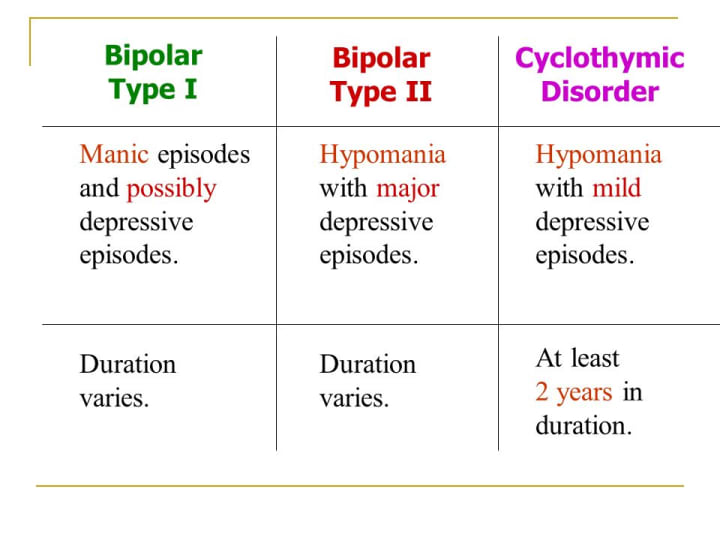 nine0005
nine0005
Alice, 27 years old
Biologist
To be honest, I don't always find understanding from my healthy environment, I often faced condemnation, devaluation of problems. But from a person who has a similar experience, you won’t hear “don’t invent”, “you can’t feel so bad”, “take a walk and it will pass”.
It just so happens that my best friend also suffers from bipolar disorder. I did not look for support in specialized communities where patients communicate, we met by chance. My friend is much older, he has much more life experience, and he was able to become a real mentor for me. Not once did his actions worsen my condition - I hope that he can say the same about me. nine0005
When I'm on the rise, I feel uncomfortable when he tries to slow me down and reduce my passions. But as soon as this state passes and I again take a sober look at the situation, each time I thank him for trying to stop the revelry and disgrace. My friend himself is currently not being treated, but he never imposed his position on me, and when I turn to doctors, he supports me in this.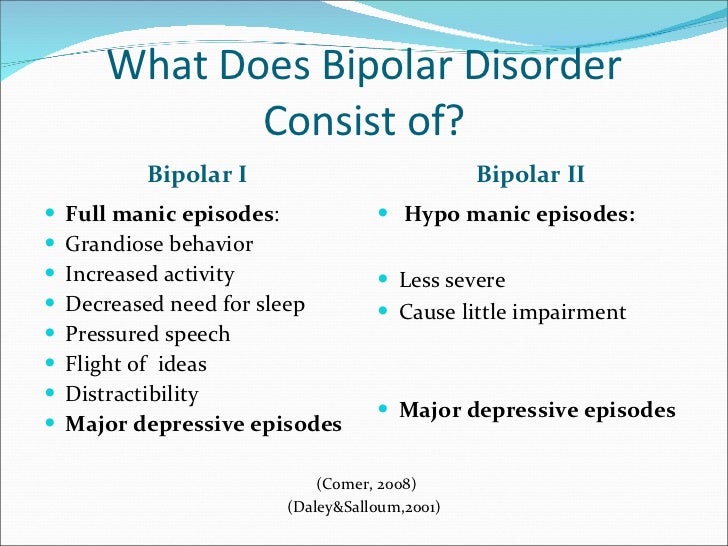
I told the doctor about this source of support - he is exclusively for it. Before meeting a friend, I had suicidal attempts, but during the entire time of our communication I never tried to say goodbye to life. When you know that there is a person who will understand everything and share warmth (while even my own family repels me), that there is a place where you can come in any condition and where they will accept me without unnecessary questions and teachings, this is a source of great strength. and hope. nine0005
When I was expecting my second child, I was depressed. My husband did not yet fully understand the features of the disease and did not want to admit obvious things - this added problems, and my emotional state became extremely difficult. It seems that only thanks to the participation of my friend, I did not do anything to myself and successfully endured the pregnancy. The child was named after him.
Sergey, 49 years old
Freelancer
At the height of the depression, I was looking for any available support and ended up in an online group of anonymous debtors (people who have taken on large loans).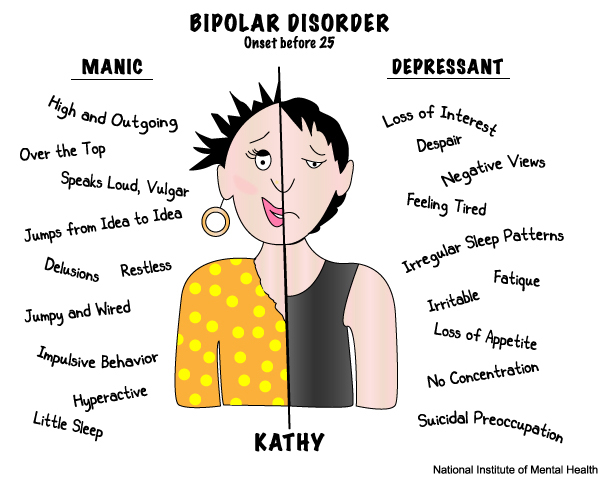 One of the participants drew attention to my condition and said that I urgently need medical help. Despite the fact that she lives in the USA, we began to communicate regularly via Skype. Olga literally brought me to the hospital and helped me prepare for the treatment. nine0005
One of the participants drew attention to my condition and said that I urgently need medical help. Despite the fact that she lives in the USA, we began to communicate regularly via Skype. Olga literally brought me to the hospital and helped me prepare for the treatment. nine0005
Americans are a pragmatic people, many young and healthy people have folders with wills and instructions in case of their death. They also approach mental difficulties calmly and thoroughly. It is common practice for the patient to draw up detailed instructions in advance. In the United States, there is a practice of issuing Treatment Agreements for people with mental illness (Treatment Contract). This document is needed so that family, friends and doctors recognize the symptoms of deterioration in time and take into account your experience and wishes in the treatment. Typically, such a document contains: a list of trusted people; signs of a normal state; signs of an approaching episode; symptoms of mania and depression; actions that trusted people should take to help a person get better and keep him from destructive acts; plan of action in case of an emergency (for example, a suicide attempt).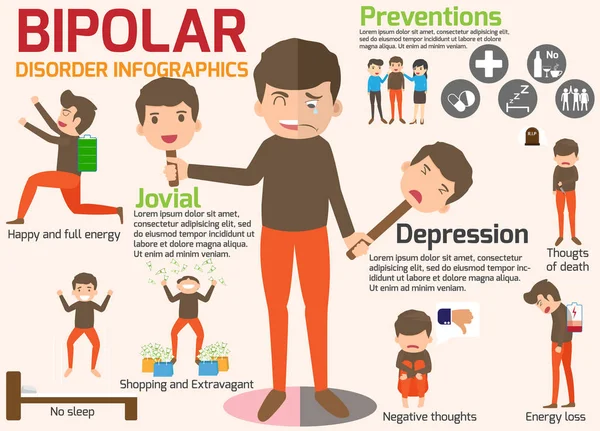 who and what will be done in case of his hospitalization, so that he can be treated without anxiety for household chores. nine0005
who and what will be done in case of his hospitalization, so that he can be treated without anxiety for household chores. nine0005
In a period of severe depression, there is a struggle inside a person between the craving for death and the desire to live - and many external things can outweigh in one direction or another. Every clue is important to help you get out. It is very difficult for one to cope with all this.
I madly didn’t want to go to the hospital and wouldn’t have made up my mind myself, until the last I hoped that somehow everything would go away on its own. But under the supervision of a friend, I drew up a preparation plan: warn the customer at work, arrange to look after my cats. Reported to her about every step. But then he could no longer simply “escape” [from hospitalization], because he felt obliged to both her and the doctor. During depression, one's own life has no value, but the people dear to me, the promises made to them, do. nine0005
At the most difficult moment, Olga became my “outer brain”, which told me what to do when I didn’t understand anything myself.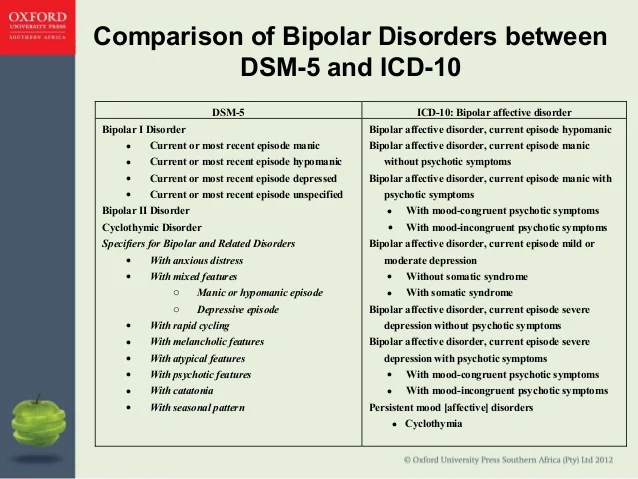 After I was discharged from the hospital, I turned to four friends for support. Usually we call each other once a week, I tell what my condition is. It is important not only to chat online, but also to hear the voice, you can understand a lot from it. Friends immediately pay attention, if I suddenly disappear and stop calling, then something is wrong.
After I was discharged from the hospital, I turned to four friends for support. Usually we call each other once a week, I tell what my condition is. It is important not only to chat online, but also to hear the voice, you can understand a lot from it. Friends immediately pay attention, if I suddenly disappear and stop calling, then something is wrong.
I think it is possible to find such a person if you set such a goal. Take a closer look at people in support groups, religious or other communities - those who understand what compassion and mutual assistance are. This must be an internally mature person, ready to take responsibility for you in a difficult situation. If this person has similar problems, then he will better understand your experiences. For this reason, relatives are far from always suitable: they themselves can panic, seeing how bad you feel, choke you with their anxiety, overprotection. nine0005
It is necessary to establish the frequency of communication and observe it. And of course, in no case should you parasitize on someone else's kindness. The support system works when you yourself take responsibility for your life, and do not outweigh it completely on another.
And of course, in no case should you parasitize on someone else's kindness. The support system works when you yourself take responsibility for your life, and do not outweigh it completely on another.
Anna and Valeria, 21
Students
Anna: After a major depressive episode four years ago that almost ended in a suicide attempt, I started looking for information on [support]. I managed to find a guide in English for relatives and friends on how to behave with such a person. I have sent this list to all my friends so that they have an idea of what is happening to me. For the past few years, Lera has been monitoring my emotional state on a daily basis, and if, in her opinion, it goes beyond the norm, she tells me about it. Lera just asks every day how I'm doing, and if she sees that I'm reacting strangely, she wonders if something happened. At first, it was very difficult, because, in principle, I did not like to regularly share personal experiences. But by regularly receiving feedback, I can imagine the dynamics: do the pills help, how long do the side effects last, does the depressive phase go into a moderate and severe degree, do I lose my critical thinking during hypomania. nine0005
But by regularly receiving feedback, I can imagine the dynamics: do the pills help, how long do the side effects last, does the depressive phase go into a moderate and severe degree, do I lose my critical thinking during hypomania. nine0005
Valeria: We gradually established a very trusting relationship. Anya studied the topic of bipolar disorder up and down, and I read the articles that she sent me. The diagnosis did not change anything for me, because it remained the same. After that, we already discussed some formalities (for example, who to call in case of an emergency).
Anna: I asked Lera to watch for hypomanic manifestations in which I lose an adequate assessment of my actions: impulsive night walks, alcohol begin. nine0005
Valeria: My friend is a very responsible and conscious girl who takes care of herself, her health and her wallet. Before buying something expensive, she asks for my advice - and then we are already sorting out the situation. We can entrust accounts to each other and not worry. I also know where and to whom to run in cases of exacerbation.
We can entrust accounts to each other and not worry. I also know where and to whom to run in cases of exacerbation.
Anna: I react badly to prohibitions and reminders of illness. Yes, I periodically have to turn to relatives for help, change treatment or take long breaks, but I expect mutual respect so that they don’t look at me through the prism of the disease. nine0197 When the mood is unstable, harsh phrases like “the disease speaks in you”, “these are not your real emotions” cause persistent rejection, even when they are true. The line between accepting a loved one's illness and identifying him with a diagnosis for healthy people is extremely thin. Therefore, those who were able to grope it deserve great respect.
Anna: In the last year, I go to see the doctor with my parents. When the doctor notices that I may not be able to do it alone, she duplicates the instructions and advice for them. I, in turn, am a friend. The doctor has repeatedly emphasized that the change of episodes is more noticeable from the outside. nine0005
nine0005
Valeria: We don't have any kind of hierarchy in relationships, so there is no pressure when one makes decisions for another. This is not eating each other's emotional resources, but complementing and supporting.
Anna: The main danger in a relationship with a person with a serious illness is to fall into codependency. This format is equally bad for both the "controller" and the "subordinate". Unfortunately, I have been in such relationships before. It is worth maintaining mutual respect and treating each other as equals. Illness should not dominate a relationship. In difficult episodes, it temporarily comes to the fore, but you should always remember that you are not a disease. nine0005
Anna: I have memory problems: I don't remember some episodes. In such cases, I can ask Lera for help. If you remember the last weeks, then these are regular reminders to call the doctor. In mixed episodes, this becomes an acute problem, because I can suddenly change my mind or forget.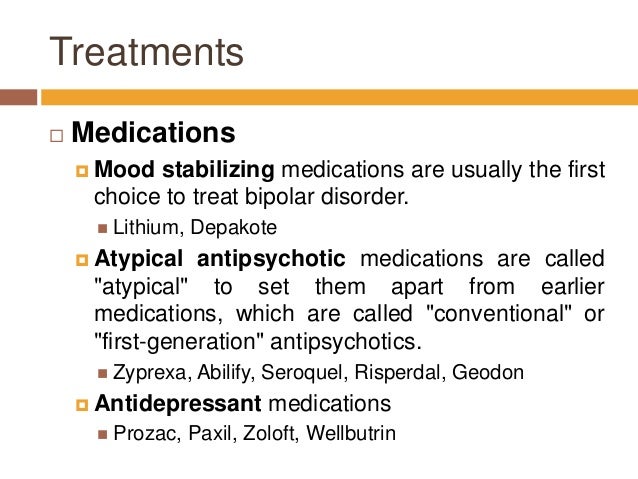 Against the backdrop of a severe episode, I may develop psychosis, and this is the most dangerous thing in the disease. Thanks to our format, I manage to avoid such exacerbations almost always.
Against the backdrop of a severe episode, I may develop psychosis, and this is the most dangerous thing in the disease. Thanks to our format, I manage to avoid such exacerbations almost always.
The advantages of observation from a loved one are an early response and the fact that he knows the patient's usual behavior very well and can notice even small changes. The main disadvantage is that normal friendly communication risks turning into constant monitoring of symptoms. Not every mentally healthy person is able to remain within the boundaries of reason. nine0005
It is important to agree in advance, before an attack, what is an undoubted sign of worsening condition (for example, persistent insomnia), and what does not need to be given special attention (for example, loud indignation at something that you do not like). In a difficult situation, often a loved one begins to behave not as an equal, but as a “healthy” and “knowledgeable”. Not all relationships stand this test.
There is also a variant of "buddy" (when two people with mental disorders look after each other. — Note ed. ) - it is good precisely because it is the true request of the patient and more equal relations without mixing roles. But I don't know the buddy support system.
— Note ed. ) - it is good precisely because it is the true request of the patient and more equal relations without mixing roles. But I don't know the buddy support system.
To choose a person you can rely on in a critical situation, take a closer look at your surroundings. Above all, a high level of trust is needed. Your assistant should be open to nonjudgmental and open dialogue and at the same time emotionally stable and resistant to stress.
Support is essential for every person - very often, and we, mental health professionals, need it. And with bipolar disorder, this problem is especially acute. At the initial stages, those closest to you often ignore the presence of the disease, and friends advise you to either "pull yourself together" or, conversely, "relax", sometimes with the help of alcohol. When it becomes obvious to everyone that the “condition” will not go away on its own, urgent hospitalization is already required. The saved patient receives the "stigma".